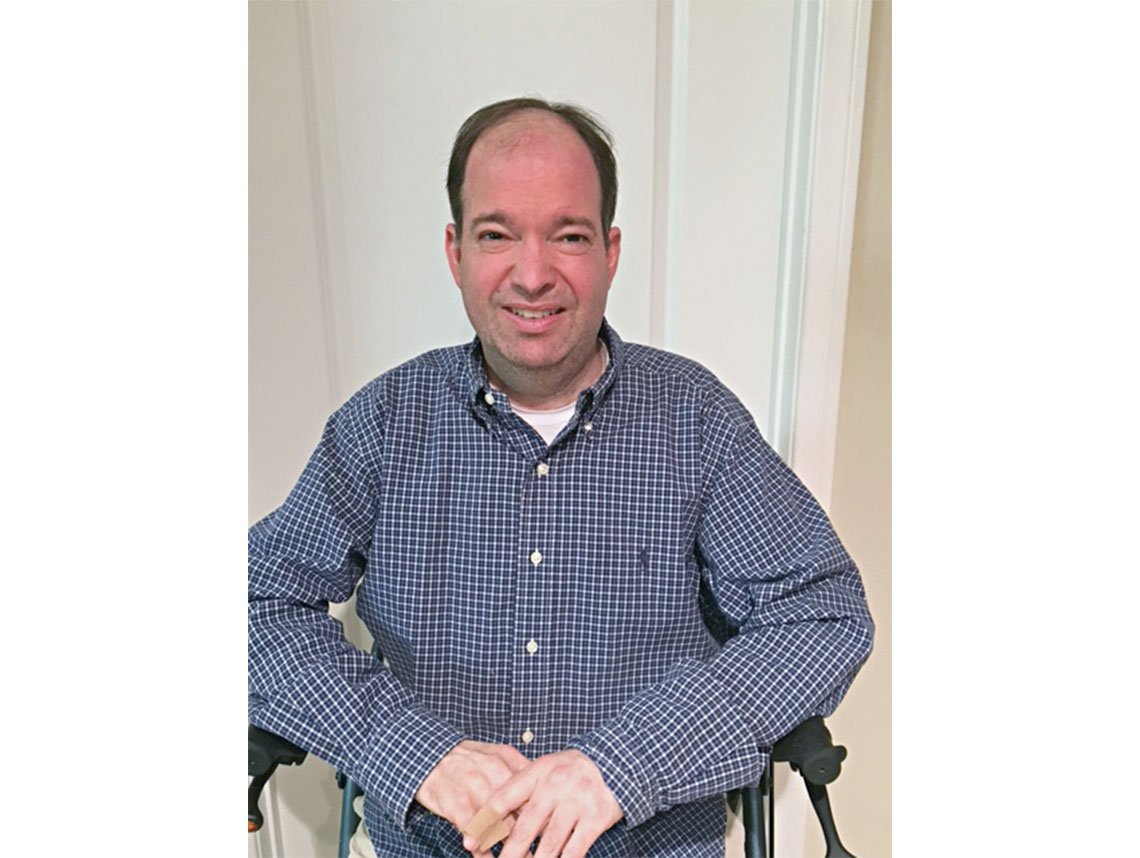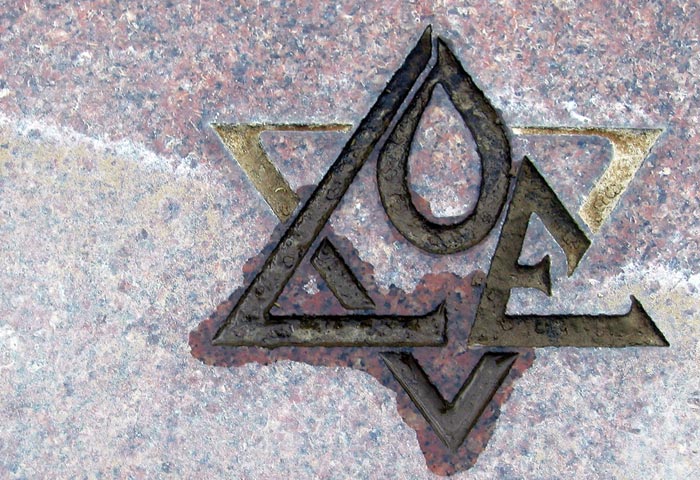
How do you overcome a life of disability and immobility with a smile and an internal light? You hold a belief in the goodness of people, a hope for the advancement of treatments, and a dream that a cure is within reach. You keep an open heart and an open mind because, otherwise, you can end up in a dark state of depression and stagnation.
I suffer from Late Onset Tay-Sachs (LOTS), a neuromuscular disease affecting the central nervous system. LOTS can be difficult to diagnose and is often mistaken for ALS, muscular dystrophy, multiple sclerosis or Parkinson’s disease.
I was diagnosed when I was about 21 years old. My parents are both carriers of the LOTS gene, and I inherited this newly recognized strain of what had always been thought of as a fatal, infant’s disease.
I am now 42 years old, yet my mobility and quality of life are comparable to that of a senior citizen.
How does it feel to live with Late Onset Tay-Sachs? In light of this being Jewish Disability Awareness and Inclusion Month, I’ll offer you a glimpse into my reality:
I use a walker but feel lucky that I am not limited to a wheelchair, as most people affected with LOTS are less mobile. Much of the time I am off-balance. I have fallen several times, resulting in broken toes, a broken ankle, scrapes and bruises. I have trouble getting up from chairs.
I need to use ACCESS, a special transportation system in California for the disabled, which has lifts or ramps on its vehicles to accommodate walkers or wheelchairs.
Having LOTS has made it extremely challenging to find employment. Every time I go into a job interview, I feel discriminated against and don’t feel qualified for the position because of my disability. I am well educated — I have a master’s degree in business — but LOTS affects my fine motor skills, making it difficult to do the typing necessary for most jobs. Bending down is also a problem. Imagine all the daily things at work requiring you to do something as menial as bending down to pick something up or getting something from a lower shelf.
The progression of my weakness has been harder to ignore in the past few years, but with exercise and will, I am trying to combat it. I attend physical and aquatic therapy four times a week, where I strive to maintain the strength I have left.
I have been in the hospital more than once for issues related to bipolar episodes, a symptom that affects about 40 percent of the people who suffer from LOTS.
I have suffered from a speech impediment since I was a young boy, which has made it difficult to give speeches or to be understood over the phone. Even the latest dictation machines that type for you don’t want to listen to me. I have taken speech therapy for years to no avail.
Housing is also a major issue. Any steps or curbs at a residence are problematic. If there is a second story, forget about it. I also must consider the proximity of restaurants, grocery stores, banks and pharmacies because of my need for transportation and assistance with chores. In addition, I need the bathroom to have a handrail on the wall that I can use to help me get off the toilet.
While I am trying to live a “normal” life, being so abnormal in so many areas has been very disheartening. The simple things in life that people take for granted are a constant struggle. I wish I could get up and run over to a friend’s house when they have people over to watch a game without wondering how I will get there. Do they have steps at the house? I can’t have ACCESS take me everywhere, so do I call Uber and will it be handicap accessible? Where do I put my walker? I have difficulty bringing food or a gift for the host, so do I show up empty handed? Ugh!
A big problem with my rare disease (about 1 in 63,000 people in the U.S. and 1 in 14,000 in Israel have LOTS) is that there is not a treatment or cure. But, there is always hope and a dream for one.
My family has started the nonprofit Late Onset Tay-Sachs Research and Education Foundation to raise funds and awareness that can help researchers find treatments and cures for this terrible disease. But the months of grueling work organizing fundraisers and paying money to update our foundation’s website (lateonsettay-sachs.org) have been a challenge.
Hope involves having the strength and passion to survive and live life to the fullest. Anyone who is sick or well should live by this mantra. Smiling is very important as well, as is being truly present in the moment, since no one knows their future.
Let your heart be open and generous. And strive to be better, more tolerant, more compassionate, more aware, more appreciative, more philanthropic — more alive!
ERIC PASTOR has been battling Late Onset Tay-Sachs for more than 20 years and vows to never give up.























 More news and opinions than at a Shabbat dinner, right in your inbox.
More news and opinions than at a Shabbat dinner, right in your inbox.